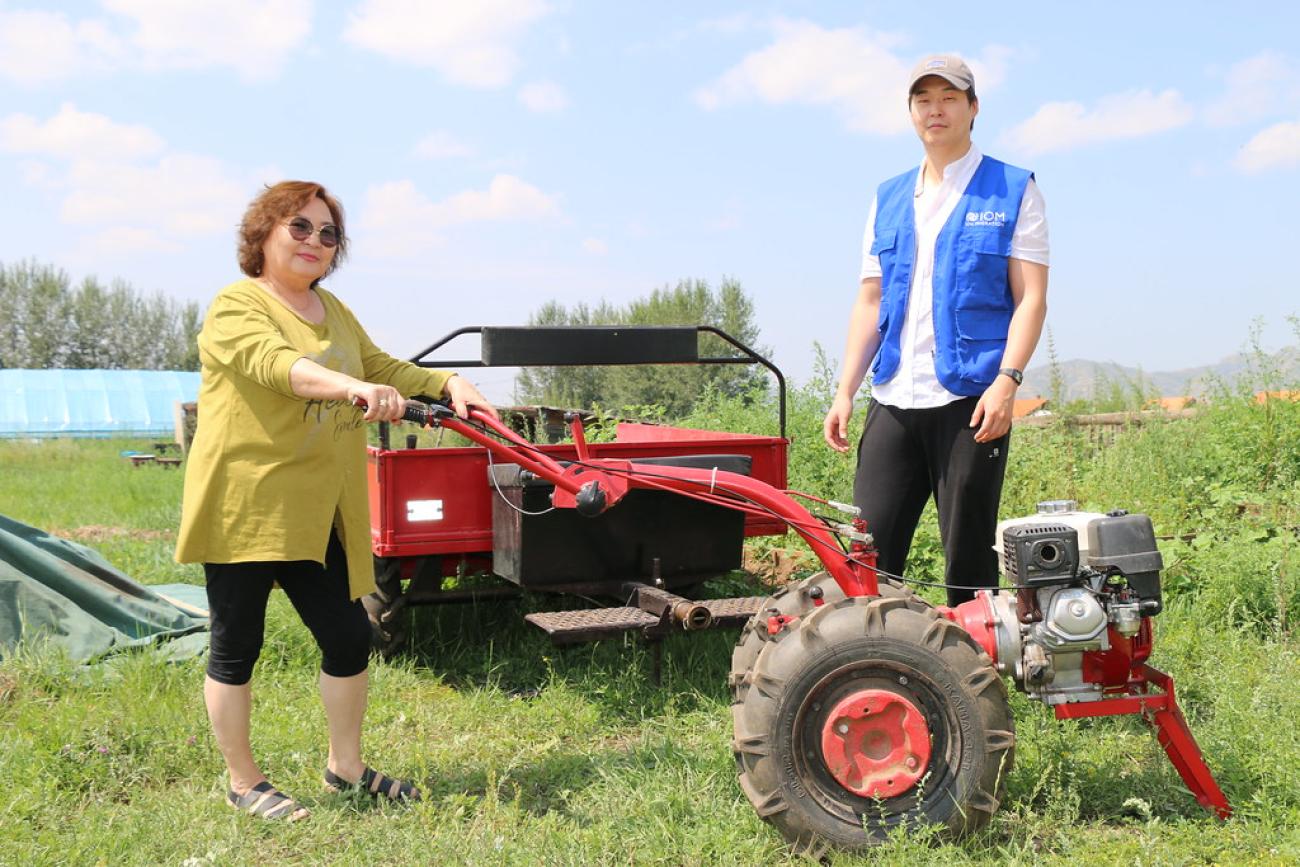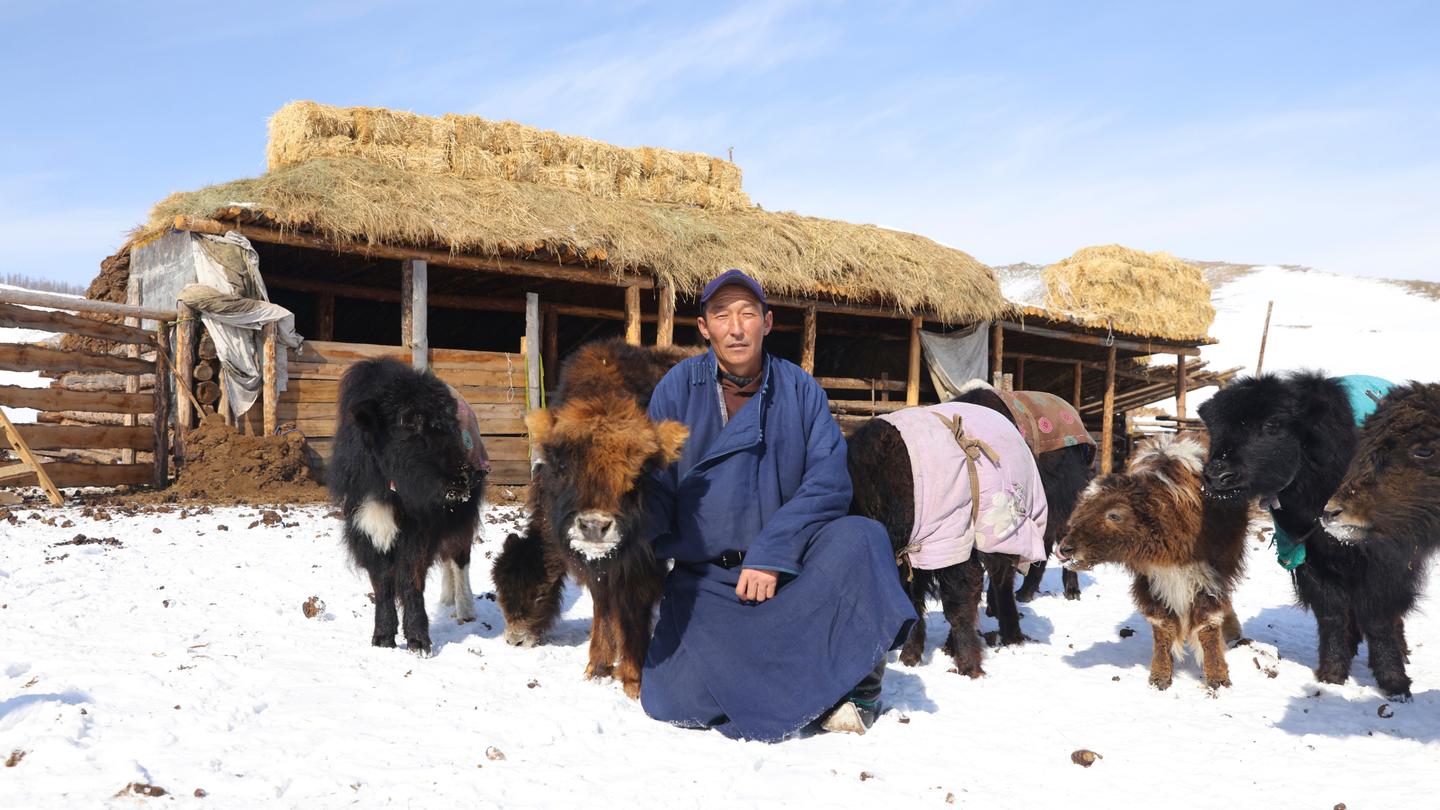Accelerating Climate-Resilient Governance in Mongolia

As Mongolia advances its sustainable development goals amid growing climate and governance challenges, the UN in Mongolia team, under the leadership of Resident Coordinator (RC) Jaap Van Hierden, is working with the Government to strengthen democratic institutions, expand climate finance and build resilience in vulnerable communities.
In a recent interview with regional outlet The Diplomat, the RC discusses Mongolia’s progress under the United Nations Sustainable Development Cooperation Framework (2023-2027), the country’s climate commitments and opportunities for deeper multilateral cooperation as the United Nations marks its 80th anniversary.
Q. Considering the UN’s 80th anniversary and possible reform, what are some of the things Mongolia must focus on, particularly in the face of erosion of democracy and increase in authoritarian governance? How can Mongolia utilise this reformative space to strengthen its democratic institutions both at home and on the international stage?
As the UN approaches its 80th anniversary, Mongolia has a timely opportunity to contribute to global reform while reinforcing its democratic institutions. Strengthening judicial independence and the rule of law remains essential, and Mongolia can benefit from UN technical assistance to improve legal frameworks and anti-corruption efforts. Expanding civic education and youth engagement through UN-supported programmes will help foster inclusive governance, especially with the use of digital tools for citizen participation.
Media freedom and digital governance are also key areas for Mongolia to lead by example. Collaborating with UN agencies to protect independent media and develop transparent digital governance frameworks will enhance democratic resilience.
Internationally, Mongolia can continue its strong peacekeeping contributions and take on leadership roles in promoting democracy and human rights through UN platforms.
Mongolia stands as a neutral bridge in Northeast Asia, championing peace through dialogue. The Ulaanbaatar Dialogue is its signature platform that unites nations, fosters trust and advances regional stability. From peacekeeping missions to policy dialogues, Mongolia is weaving gender equality into its peace and security agenda. In doing so, it ensures that women’s voices help shape the future of conflict resolution and sustainable peace.

Q. Mongolia and the UN signed “The United Nations Sustainable Development Cooperation Framework (UNSDCF 2023-2027).” How do you assess Mongolia’s implementation of these goals? What are some of the hurdles?
Mongolia’s implementation of the UNSDCF 2023-2027 has shown momentum, especially in 2023 and 2024, with over $90 million delivered by 24 UN agencies. However, the projected 2025 delivery drops to around $40 million, signalling a potential slowdown unless additional resources are mobilised. Funding from key partners like the Green Climate Fund, the Adaptation Fund, the Global Environment Facility, the World Bank, the European Union, and bilateral donors such as Canada, China, Japan, Luxembourg, the Republic of Korea and the United Kingdom has been instrumental in advancing UNSDCF priorities.
Despite tangible progress, development challenges remain. Poverty affects more than a quarter of the population, and income gaps between urban and rural areas make inclusive development difficult. While steps are being taken to reduce corruption, it continues to impact public trust and governance. Boosting the ongoing work to increase transparency in budgeting would also strengthen the delivery of public services.
Climate shocks like the 2023-2024 dzud (a climate hazard unique to Mongolia) have strained resources, especially in rural areas where digital infrastructure and service access are limited.
To meet UNSDCF goals, Mongolia needs to strengthen co-financing mechanisms and improve budget execution. UN agencies must also work together to help close the significant financing gap.
Q. When discussing climate pledges, climate financing is extremely important. How are Mongolia’s leadership and institutions navigating climate financing, and how do you assess the Mongolian government’s own commitment to climate financing?
Mongolia has integrated climate finance into its Vision 2050 national strategy, committing at least 1 per cent of GDP annually to climate and desertification efforts, including the “One Billion Trees” campaign. It is strengthening institutions and regulatory frameworks to support climate finance flows and actively promotes private sector engagement through incentives and capacity building.
The National Sustainable Finance Roadmap, led by the Ministry of Finance and the Bank of Mongolia, aims to raise green loans to 10 per cent of total banking sector lending by 2030, with strategic actions to align financial flows with climate goals. A Green Finance Policy Division has been established to coordinate efforts, and climate-related financial disclosure guidelines have been issued to improve transparency and attract investment.
Mongolia collaborates with partners such as the UN, the Green Climate Fund, the Asian Development Bank, and the World Bank to mobilise climate finance and technical support. Projects such as the Carbon Market Readiness initiative and the ENSURE project reflect strong political will and long-term financial planning for climate resilience.

Q. In Mongolia, climate change is a multilayered issue that is intertwined with air pollution, energy, as well as efforts to transition to renewable energy. What are some notable UN projects and initiatives designed to help Mongolia?
A flagship effort is the Joint Programme for a Just Energy Transition. It supports Mongolia’s climate goals through a national framework that integrates inclusive planning and financing, especially in the health and education sectors, ensuring no one is left behind.
The Solar Facility Project in Chingeltei District replaces coal heating in ger areas with solar systems and smart meters. It supports households, tracks carbon savings, and promotes gender-responsive training and employment, thereby paving the way for market-based expansion of clean energy.
In rural areas, the ADAPT Project strengthens herders’ resilience to desertification, drought and dzud by enhancing the use of climate data, improving land and water management, and expanding market access for sustainable livestock products.
UN Mongolia also coordinated a humanitarian response to the 2023-2024 dzud, supporting people and conducting impact assessments to inform future resilience strategies.
Read more coordination results from Mongolia here.













